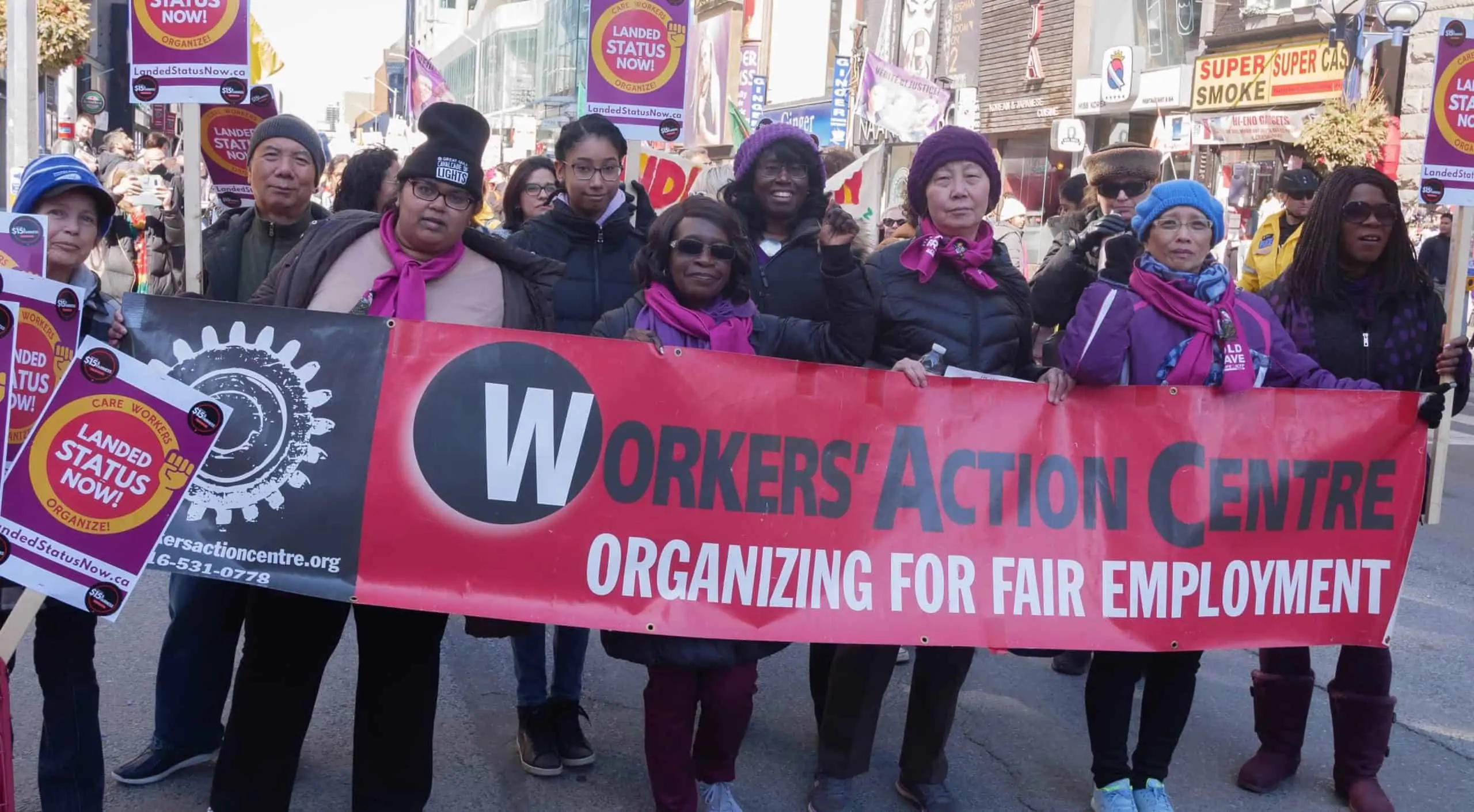How Workers Action Centre is Advocating for Frontline Workers in Ontario
“The COVID-19 pandemic is getting worse, not better, for marginalized workers,” said Deena Ladd, executive director of Workers Action Centre (WAC) in Ontario, at a recent emergency town hall.
WAC, a grantee partner of the WES Mariam Assefa Fund, is addressing many of the challenges immigrant workers face on the front lines of COVID-19 and related crises. Earlier this month, WAC and Justice 4 Workers held an emergency town hall to hear from workers about their experiences and uncover potential solutions. More than 400 people attended.
One issue that WAC has taken on is campaigning for decent work for temporary agency workers, many of whom are immigrants. At the town hall, Ayesha, a temporary agency worker who came to Canada in 2016, shared her experience working without health benefits, which are not offered through temporary work, and regularly working 12-hour shifts but still needing access to emergency food supports. She has been forced to work despite being injured because she would quickly be replaced if she did not show up for an assignment. Her story is not unique; more than 128,000 temporary agency workers in Ontario face a similar reality.
WAC’s advocacy efforts are critical to ensuring that recruitment agencies do not take advantage of workers. After years of lobbying the provincial government to protect workers against recruitment agency fees, WAC finally witnessed the province take some measures. However, according to WAC, the fines levied against them are not enough. Currently, there are more than 2,000 recruitment agencies in the province, many of which are not properly licensed. According to WAC, many of them are violating basic employment standards. WAC’s efforts led to the province making plans to prevent illegal treatment of workers and recover more than $3.3 million in unpaid wages. WAC believes the next step is for the province to act against employers who use these illegal recruitment agencies.
At the town hall, those in attendance also heard from Dr. Naheed Dosani and Birgit Umaigba, a registered nurse, about how decent work is a matter of public health.
“COVID is not just a health issue, it is a health justice issue,” said Dr. Dosani. As a palliative care doctor, he sees clients who are unable to access COVID-19 testing, take off paid sick days, or even obtain KN95 masks. Agencies do not provide masks or rapid tests; workers are expected to get their own masks and tests, on their own dime. Dr. Dosani is calling on the province to put more equitable health policies in place.
At the town hall, WAC and Justice 4 Workers highlighted two key actions: first, the demand for 10 permanent paid sick days for workers, led by the Decent Work and Health Network; and second, an advocacy effort to resume emergency income support. Following the town hall, on January 18, Justice 4 Workers continued the fight for decent work and held a meeting to organize a response to federal and provincial calls to action.
WAC, along with other groups, is working around the clock to demand more for workers, create leadership opportunities, and provide workers with tools to help them advocate for themselves in the workplace and with the government. The organization also runs food banks, vaccine clinics, and an immigrant leadership development program through its Feet on the Ground program. WAC is shining a light on the issues facing hundreds of thousands of workers in Ontario who continue to work in the shadows.
Stay in Touch
Thank you for your interest in the WES Mariam Assefa Fund. We’ll share updates on the Fund’s efforts, what we’re learning, and opportunities through our email list.
